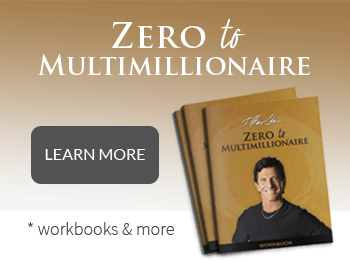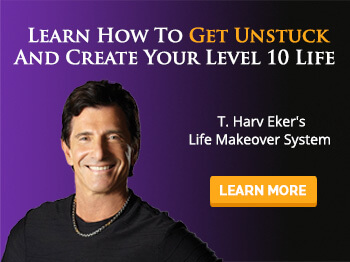Last week we took a look at how anger is one of the bitterest pills you can swallow. It’s the pill that doesn’t dissolve. It just sits there, potentially poisoning any and all good that comes into our lives.
You can’t have a fresh start to a relationship—with people, money or anything else—until you’ve cleaned up that lingering resentment with your parents, spouse, friend, lover, relative or whoever hurt you in the past. If you don’t clean that up first, you’ll drag that hurt with you.
A quote that I really like is from a book called ‘Your Cosmic Destiny’ by W.A. Chapman. It says, “Holding on to anger and resentment is like drinking poison and expecting someone else to die.”
So how do we let go of anger? We looked at opening ourselves to the other person’s perspective: there might be something going on that we didn’t know about.
The other part of letting go of anger is to forgive those people, even if they were dead wrong; even if they’re still freakin’ jerks. We all do the best we can at any given time. It may not be one of our best moments in life, but it’s the best for that time. Understanding this simple truth makes a huge difference in letting go.
Whatever happened to make us so upset, it’s not the event that has us any more. It’s the story about the event and our choice to keep that story alive. All we have to do is remind ourselves that both us and those we’re angry with were not getting (or perceived we weren’t getting) what we wanted, and both www.fertileheart.com/clomid-clomiphene-infertility-treatment/ side’s reactions are based in fear. Our conditioning blocks our higher selves from stepping back and looking at things as they are, not as we fear them to be.
When we become aware, though, we now have an opportunity to make new choices. We can consciously choose to come from our higher self—be the person we know we can be—forgive and move on, remembering that punishing them any longer only hurts us.
So you don’t necessarily forget but you do necessarily forgive. Forgiveness is the key because when you release them from their deed (or non-deed as may be the case) you automatically release yourself from the anger and negative emotion around that deed.
It’s been way too long, with too much hurt and too much pain. For your own sake, tell whoever you need to that you forgive them, or that you’re at least willing to let it go. Forgiving is not condoning, and it’s certainly not forgetting. Forgiving is our way toward healing.
Here’s what’s important to remember, though: do not expect ANYTHING from them! Heck, in your mind that person “deserves” your forgiveness, but they may feel like they don’t need any forgiving. They might actually be resentful toward you, but that’s okay. It’s not about them. The process is for you. Say your piece, hear and accept their side, and be on your way in peace.
What was the most impactful result of forgiveness that you’ve experienced—from either side of the equation? What significant changes in your life happened as a result of clearing anger and resentment with someone important in your life? We want to hear from you!
Of all of the negative emotions we have to deal with, the most debilitating of them is anger. Anger sometimes runs and can often ruin lives.
I was angry at my dad for years. When I was a kid, I had this coin collection that I was really proud of, and I kept the coins in this piggy bank. My dad knew where I kept it as well, and one day it was just gone. My prized collection that—in my mind at least—I worked so hard for, just disappeared. Eventually, the piggy bank reappeared, but when I angrily accused my father of stealing … let’s just say he responded pretty angrily, too.
I thought of it as one of those things that ‘just happens,’ and you move on, yes?
Throughout my adult years I never re-examined that incident. I never considered his side of the story. My perspective was, ‘I’m right and that’s that!’ Fine and swell except for one problem: I unconsciously decided that men weren’t to be trusted with money or anything else. The anger and distrust was holding me back, not him. Think that had an effect on my long-term success and happiness?
Most of us are run by our past circumstances. We play the victim role based on an idea that it’s all our parents’ fault for how they raised us. ‘This is what happened, this is the conclusion, and now this is what I do.’
‘You want me to be a success? I’ll be a failure just to show you what a lousy parent you were!’
The most important thing to the conditioned mind is to be right. And when we’re angry, it’s usually about not getting what we want, and we feel justified in our position for the reason of the moment. So we retaliate by not giving the person that we’re angry with what they want. Meanwhile, we’re often going down the drain with or without them, true or true?
So … five different cities, 12 different businesses, 14 different jobs and 35 years later, I learned my dad was actually showing my prized coins to his poker buddies, and he didn’t want to confuse my coin collection with the poker pot so he just kind of stashed it away and forgot to put it back where I kept it. He was proud and protective, not a thief. Only when I became aware of why I wasn’t settled down—as a form of rebellion, anger and retaliation—I was able to make a new choice and build lasting success in life.
Anger and resentment only hurts you! You feel it, not whoever you’re angry at. It gets stuck in the cells of your body, not theirs. It makes you sick, not them. Even worse, sometimes that anger might actually be totally unwarranted, a simple misunderstanding. It’s not worth hanging on to.
Search your past for an emotional incident that resulted in your getting angry about something that concerned money and/or at least one other person. The idea is to simply re-look at a past or childhood situation from your current and (possibly) more mature point of view, and consider revising it so that it doesn’t haunt you anymore. What’s your story? We want to hear from you!
There’s nothing like a little self-congratulation for the ego, yes?
I’d rather pat myself on the back and maybe look like an egotistical jerk than to maybe get no praise at all. We recently took a look at the power of receiving—including compliments. That doesn’t mean we can’t give ourselves some props, too. In fact, it’s important for success-building.
Why? Because we’re creatures of habit. Success is a habit as is failure; and mediocrity—which is worse than failure. Mediocrity is this lukewarm thing where there’s not enough pain to make you want to move.
The more success, failure, or mediocrity you live in habitually, the more natural that process becomes for you. When your mind is comfortable and used to success, success becomes your path of least resistance. And success therefore becomes normal and automatic.
So how do you utilize this law in your favor? Simple: recognize and acknowledge your successes. Some people say, “Not focusing on my success keeps me striving.” I say it keeps you unrewarded, unhappy, and in a pattern of failure.
We all love to be recognized and rewarded for our good deeds, yes? Feeling significant is a basic human need. Most of us unfortunately have let some of the greatest successes of our entire lives just totally slide into oblivion, without ever really acknowledging or celebrating them in any way, shape, or form. It’s important that we keep our big successes in the forefront of our mind for references and to reinforce our confidence.
Isn’t it true that our mind will almost always pick out what’s “wrong” with us? In what we can’t or shouldn’t do? It hardly ever goes back to the great things that we did. So if you want to go out there and do something new like make a couple of million dollars in a certain amount of time, it’s going to seem scary because your mind isn’t going to go, ‘You’ve handled this before. Not a problem.’
That has to be a conscious thought that we force in there. Left by itself, something new or scary will make the mind go, ‘Hell, I don’t want to do this!’ So it’s important that we keep whatever successes we’ve had at the forefront of our mind. We want to ingrain them as best we can on a physical or emotional level so that they’re part of who we are.
Can you come up with three of the greatest successes of your life in any area, right now? If you can’t come up with three successes, you are way too hard on yourself. If you have trouble coming up with three successes, you won’t even look at anything good about yourself which means you won’t look at other good things about other people or anything.
They don’t have to be incredible. They just have to be big successes for you in the situation you were in. What have you overcome? It could be business. It could be relationships. It could be money! It could be from childhood. It could be sports. It could be anything. We want to hear from you!
I have a friend who struggles with weight. Her intention to lose the weight is honest and sincere; desire and action is not the issue. She goes to the gym regularly, participates in multiple softball leagues, and does constant reading on diet trends, trying anything that might work. But eventually, the diet falls by the wayside even if the activities don’t, hence her progress fluctuates.
When I asked what the motivation was for wanting to lose the weight it was, “I’m disgusted with myself.” Okay, sometimes pain can be an effective motivator, but how about something a little more … self-supportive? I don’t know … like looking forward to the day you go to the beach and show off? That sounds a little more compelling and positively motivating, doesn’t it?
Everyone’s motivation is going to be different no matter what the goal, but whatever that “why” is, it better be powerful. It’s got to be emotional. Hey, sometimes it might even be reacting in a moment of total freak-out, but whatever that trigger is, make it mean something to you! If you have a good enough reason, you’ll figure out a way how, won’t you?
I have another friend who quit smoking almost a year now, cold turkey. He had smoked for over 10 years. People, including me, were surprised and proud, all wondering how he did it. No patch. No gum. No electric fake cigarettes. He said it was easy—he looked in the mirror one day and saw a small lump on his neck, in a lymph area.
He then flashed forward to imaginary moments of telling his friends and family that he had cancer. He thought about what it would be like to put them through watching him disintegrate, maybe suffer. He thought about the pain, guilt, and helplessness of those who wouldn’t have the strength to deal with all of that.
That small lump turned out to be only a garden-variety in-grown hair, but it was enough. He broke his last cigarettes in half and that was that.
When you have a big enough reason, the “how to’s” come a lot more easily. You need clear and powerful reasons. It’s also going to allow you to be willing to do whatever it takes.
More importantly, your why has to be stronger than those non-supportive beliefs you’ve been working on. Like, “Rich people are greedy.” Well great! You don’t wanna be broke, but “rich people suck,” and your freaking rent’s due.
You have to have a strong purpose for pursuing money, or anything that really matters to you. If you have nothing behind it, where is there to go? You’re either growing or dying! You’re either going to it or away from it! Got it?
What was one of the biggest challenges or obstacles that you faced in your life, and what was the push that finally got you over that hump? Was it life or death? Absolute need for safety or survival? Would a less desirable outcome have negatively impacted someone you care about? It’ll be interesting to see how many people were motivated to act when someone else would be affected by our actions, our non-actions. We want to hear from you!







